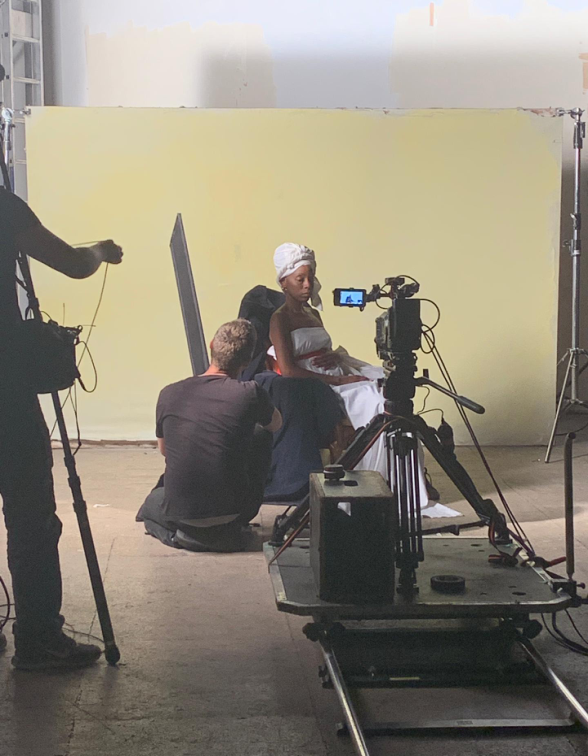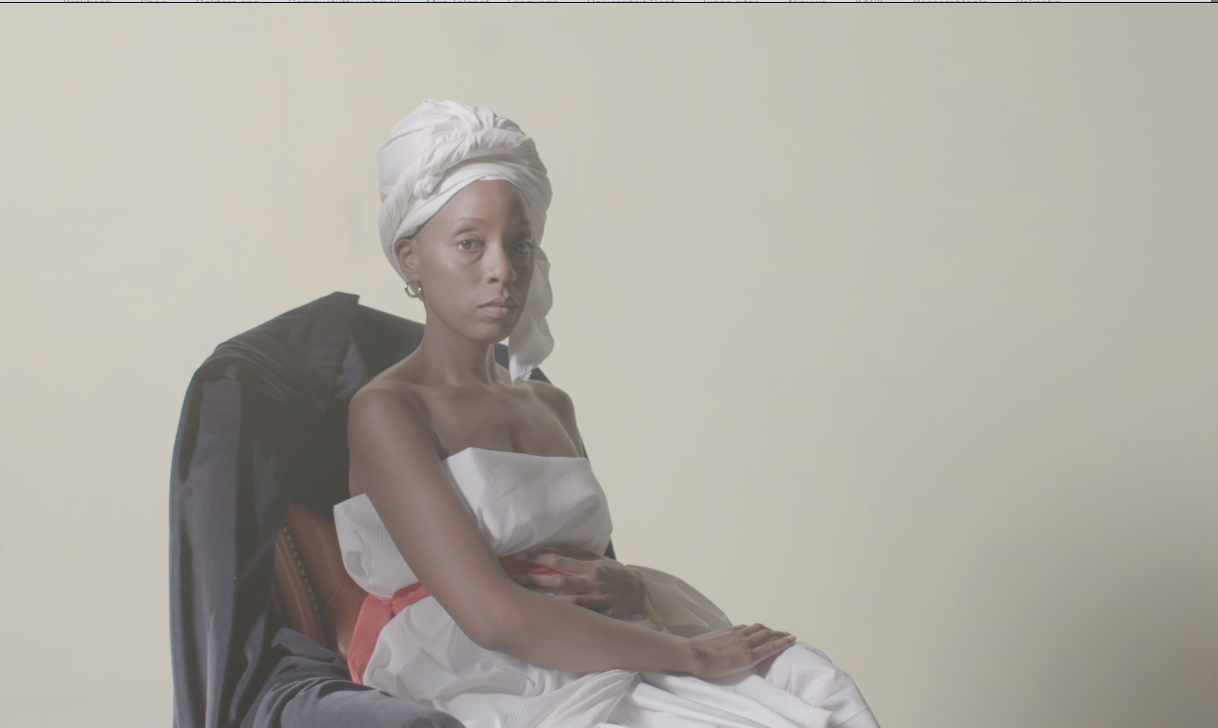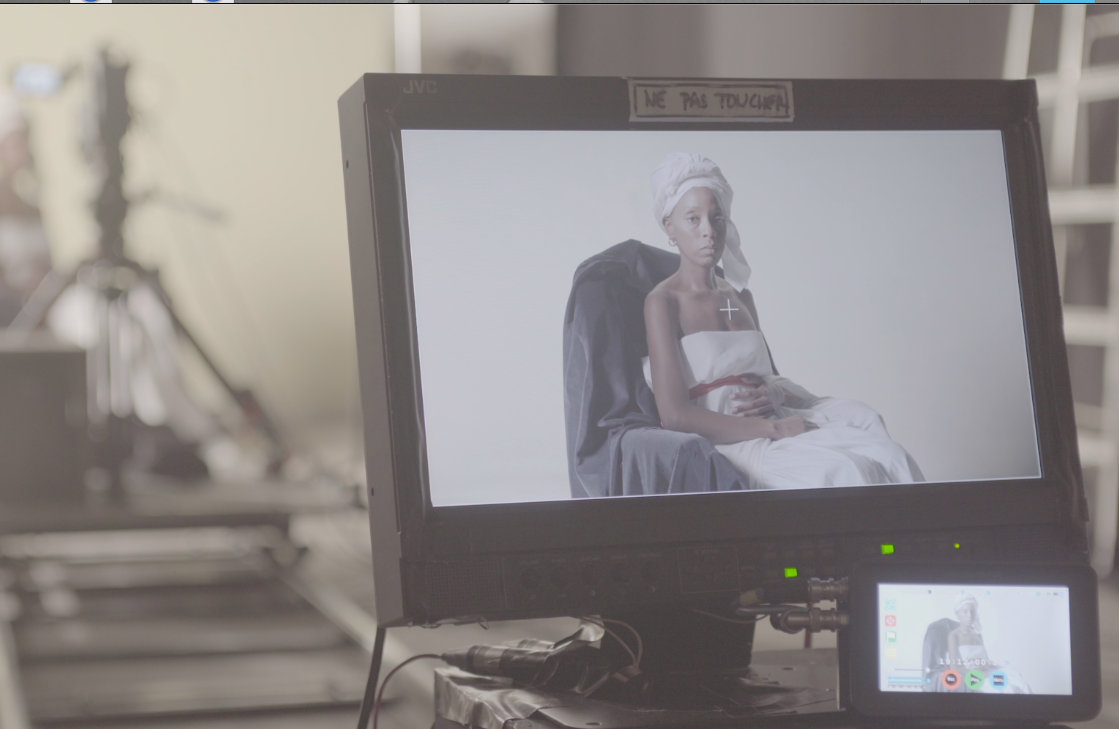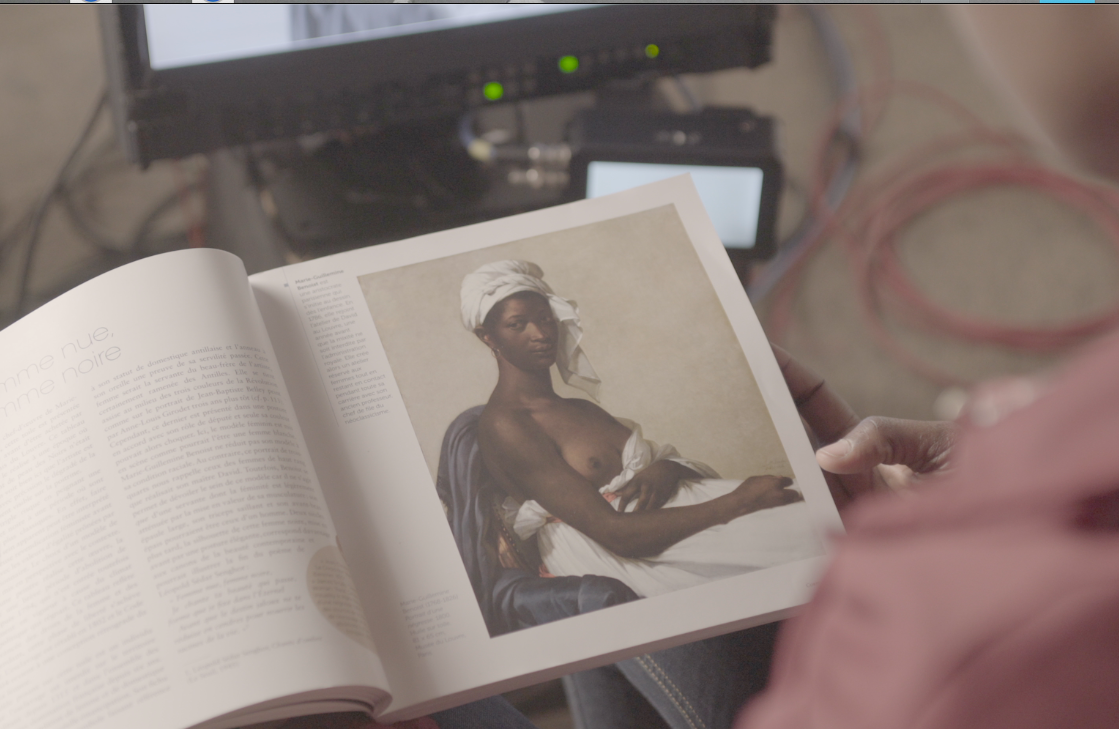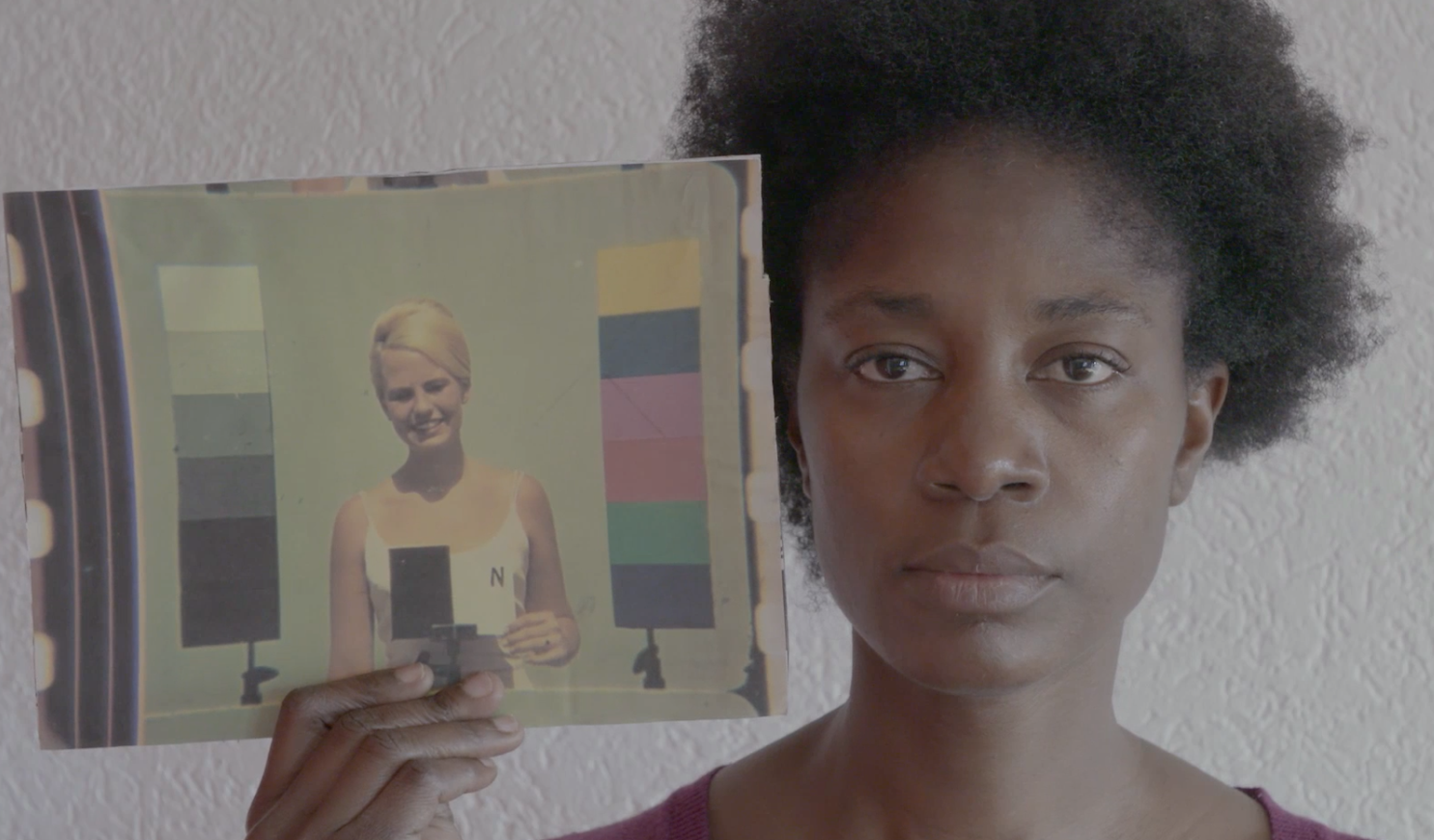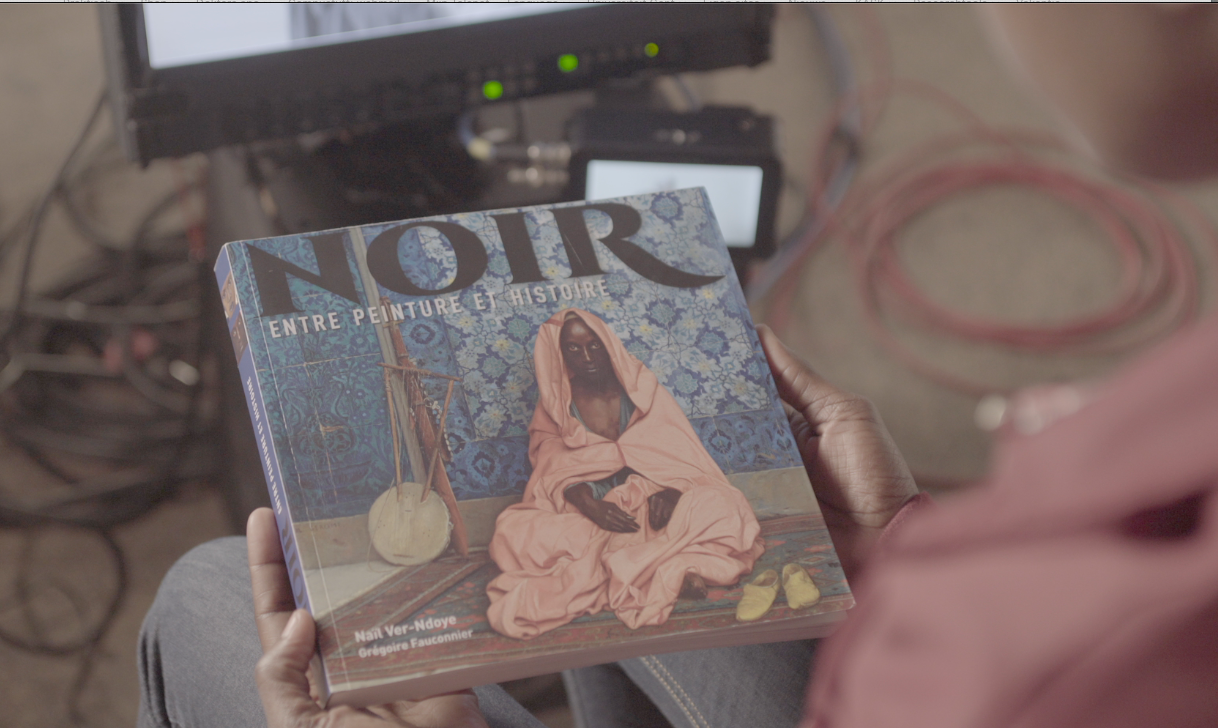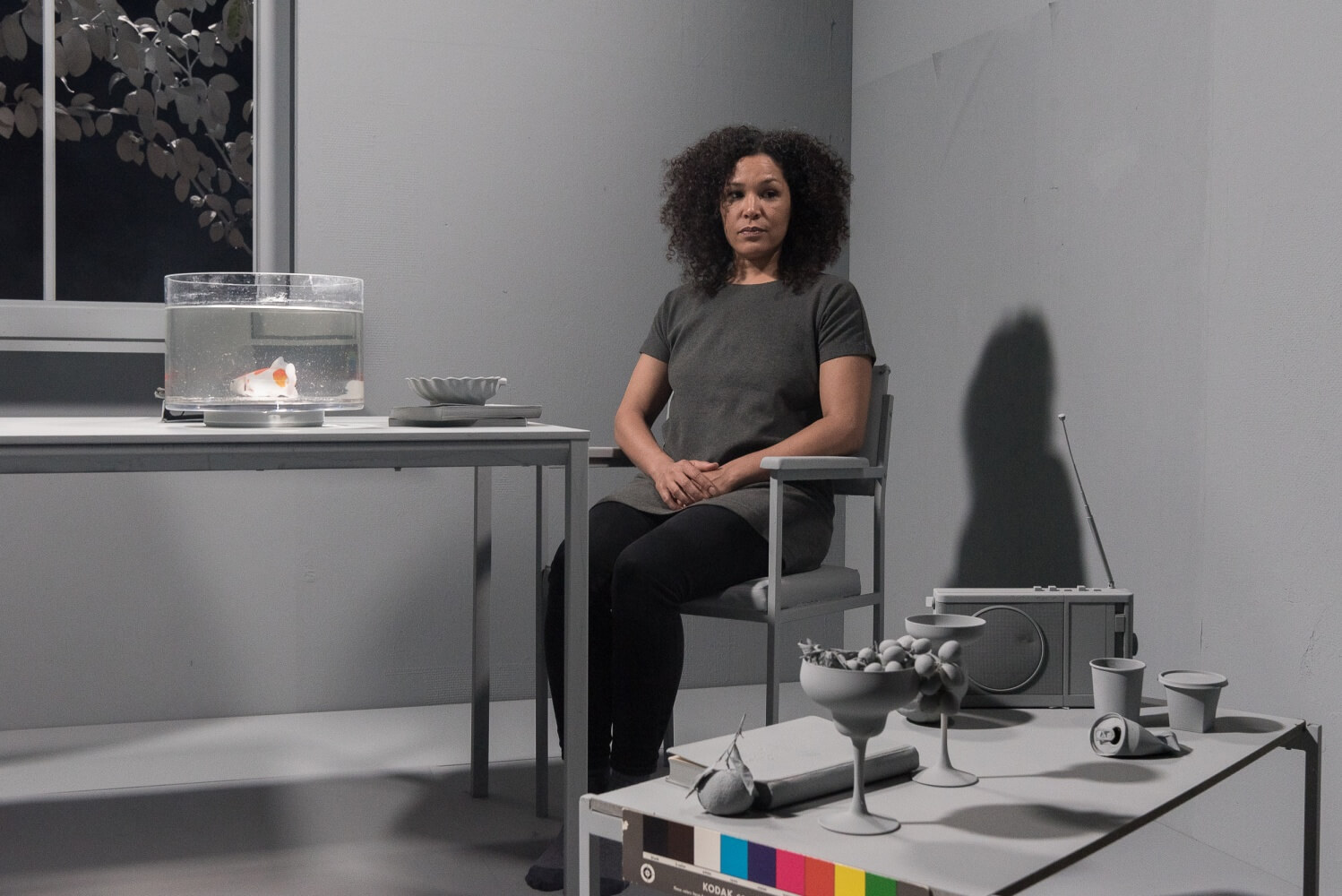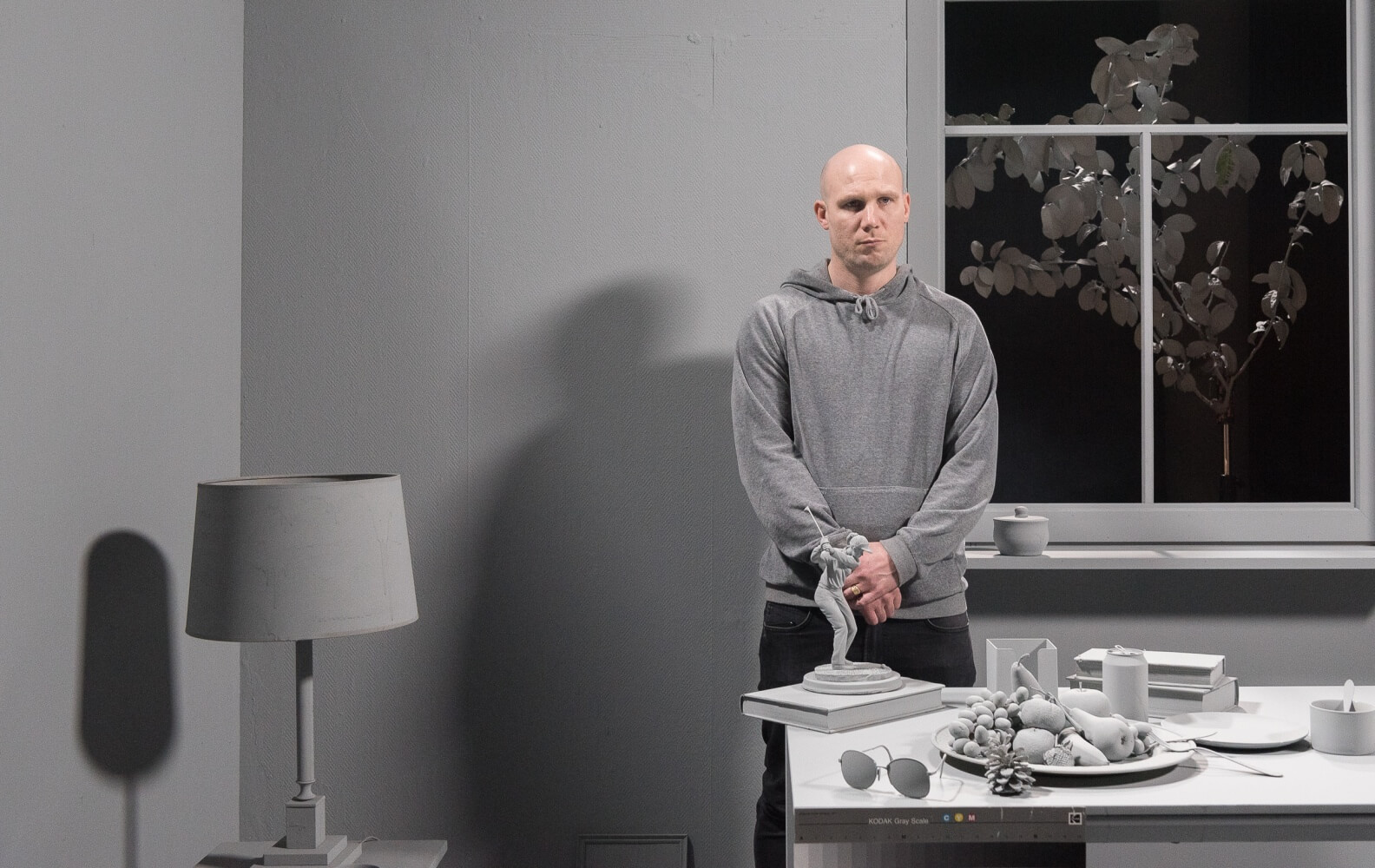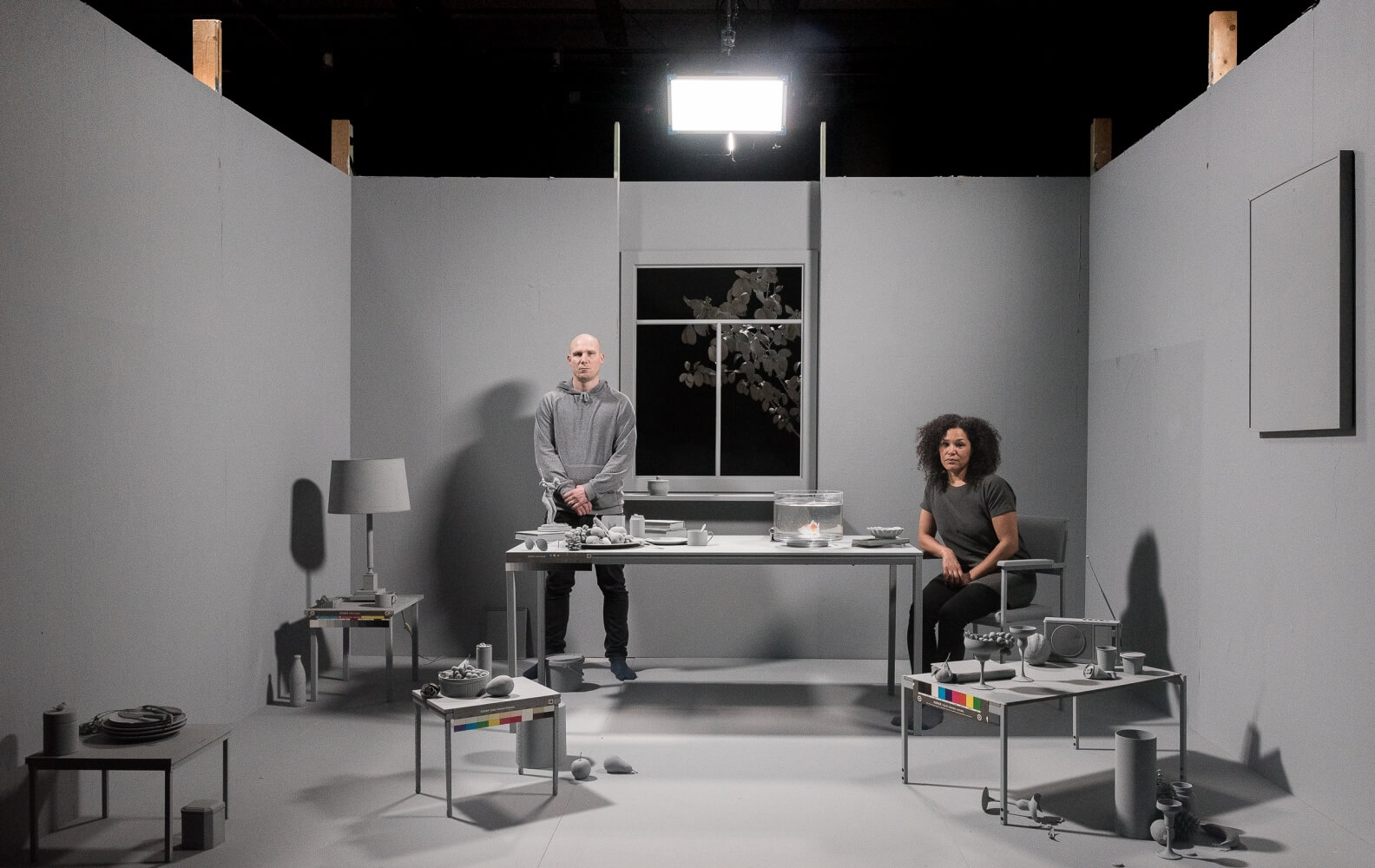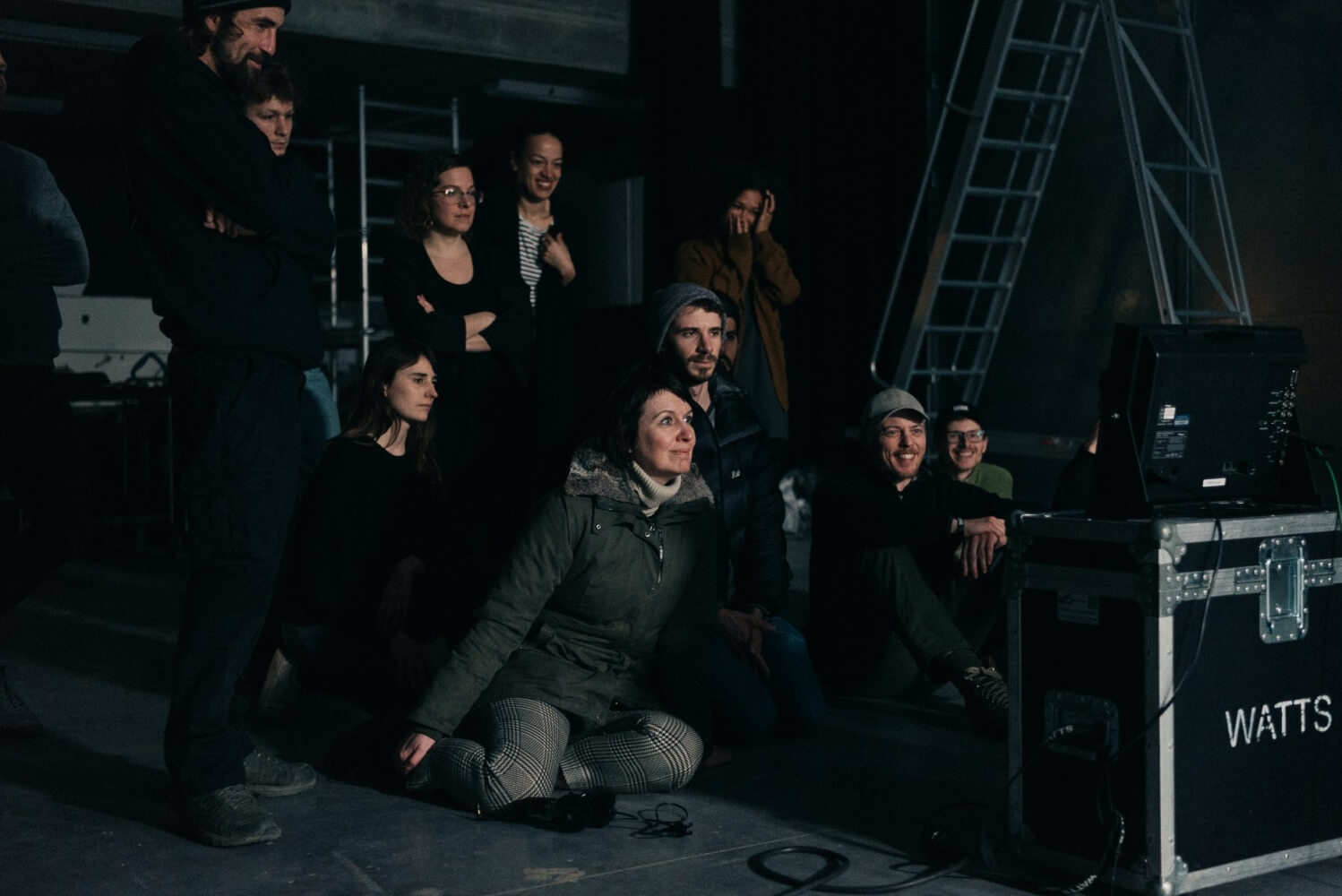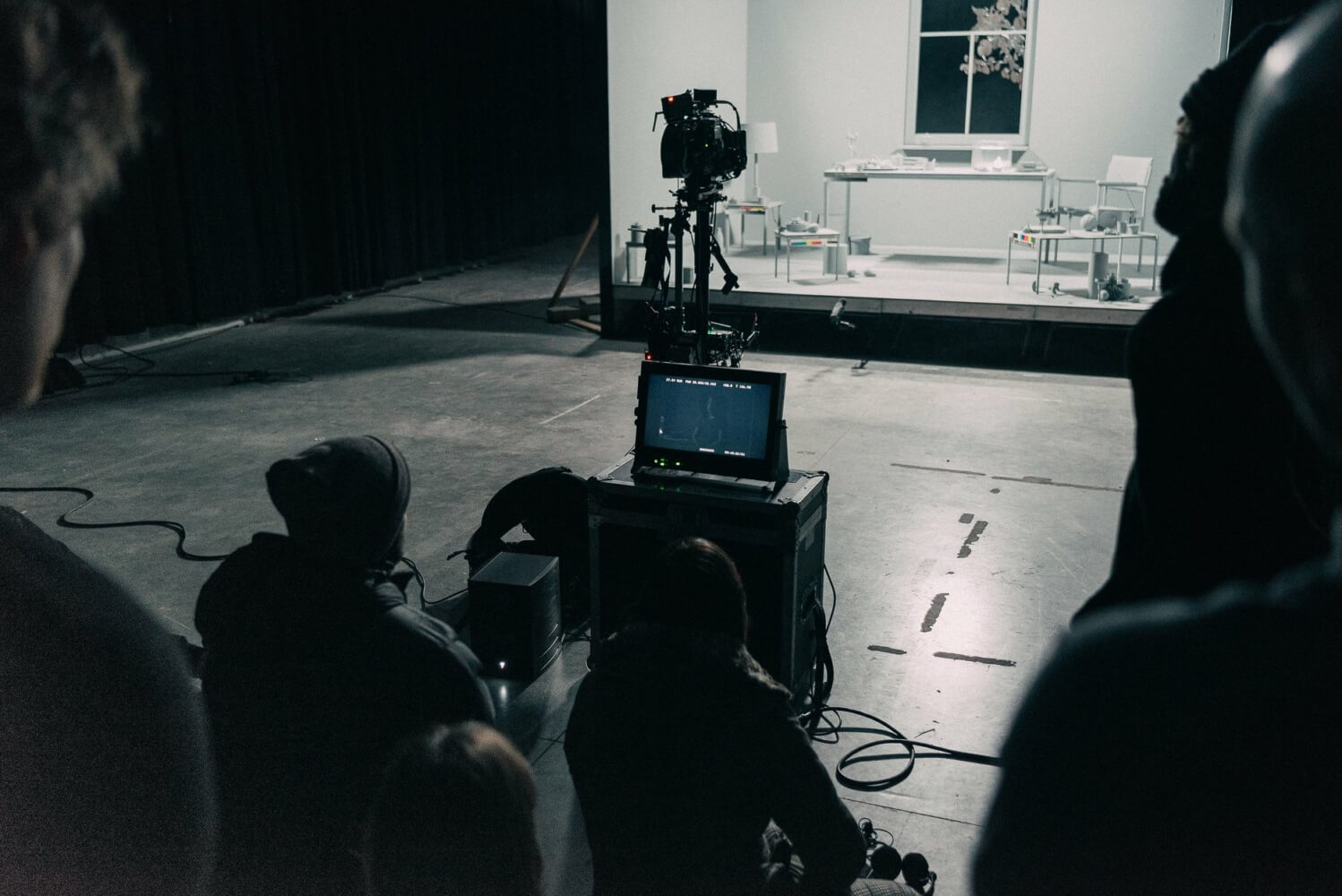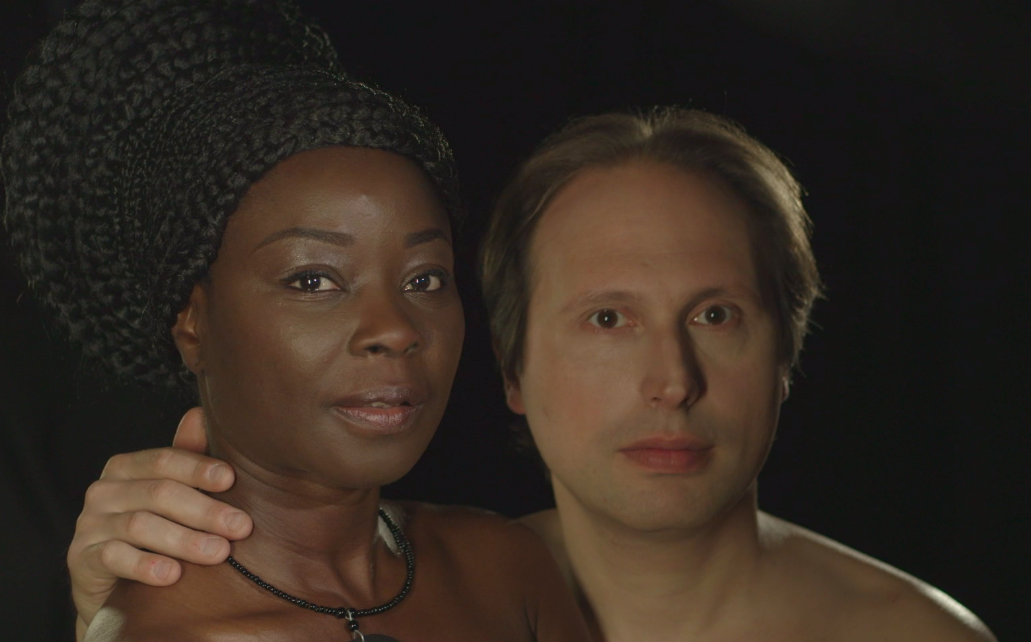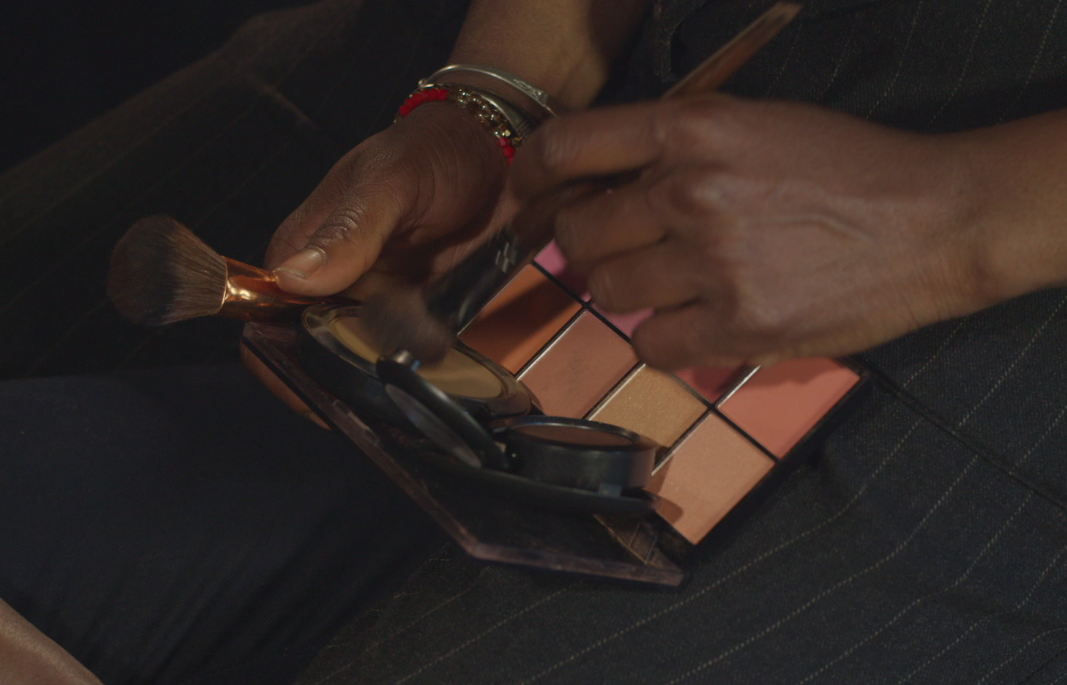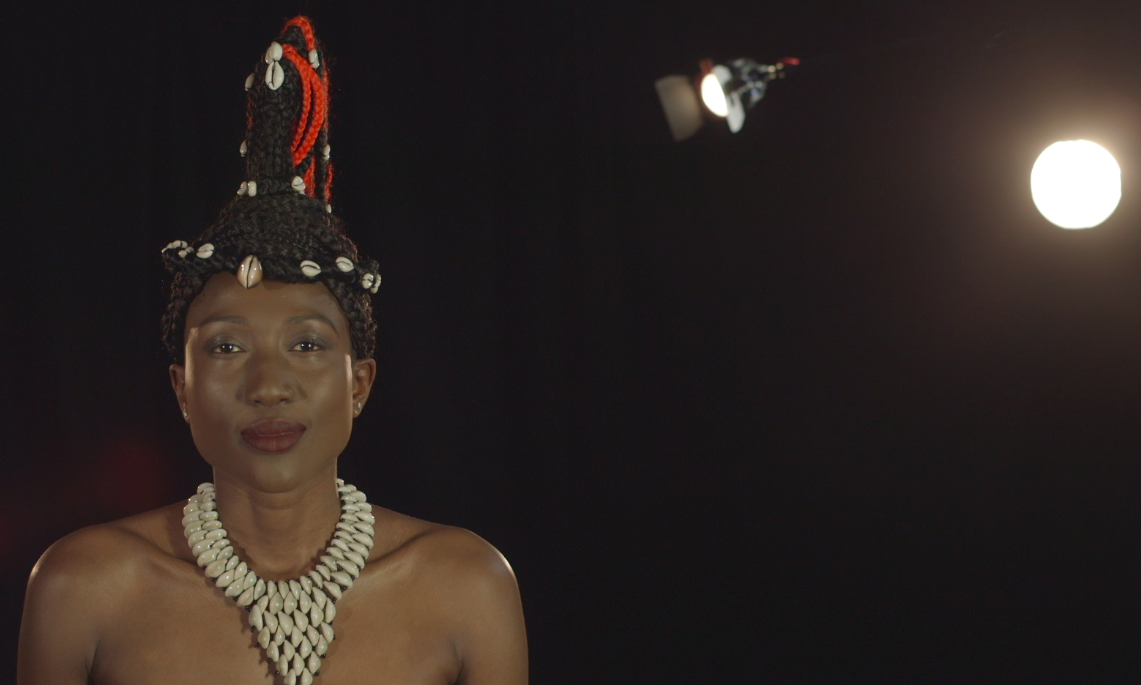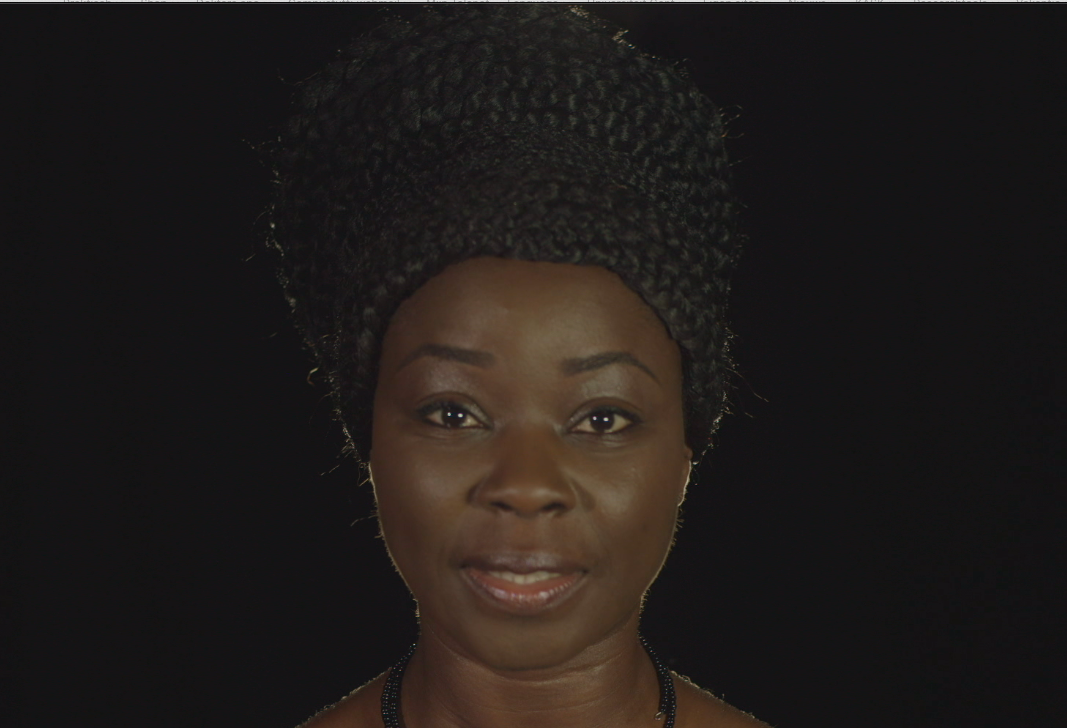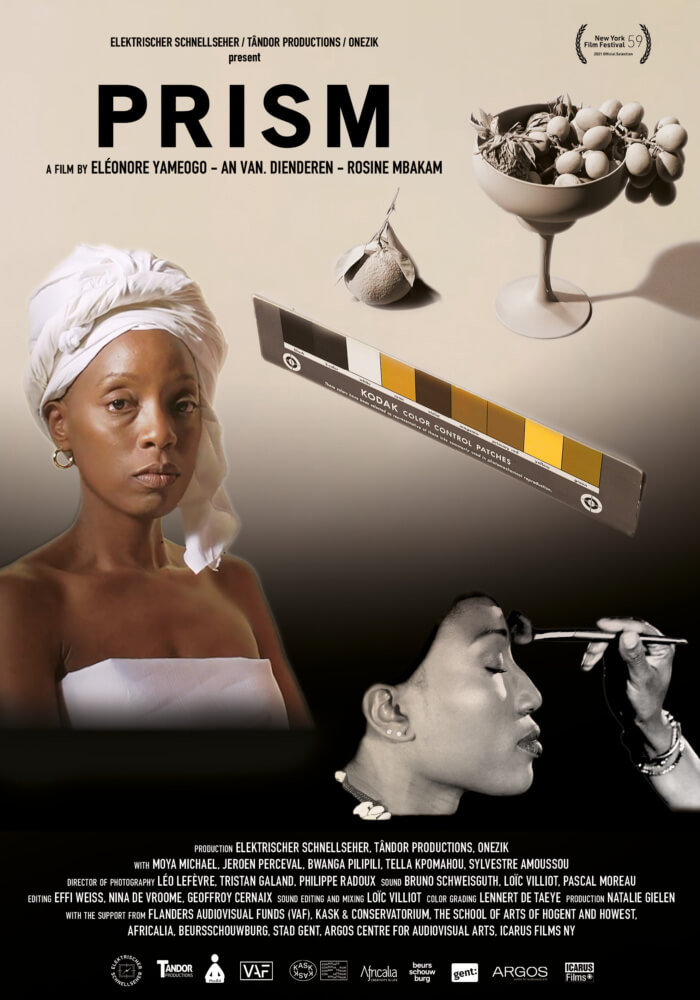Prism
For PRISM Belgian filmmaker An van. Dienderen invited Brussels based Rosine Mbakam from Cameroon and Paris based Eléonore Yameogo from Burkina Faso to work together on a film in which the differences in their skin color serves as a departure to explore their experiences with the biased limitations of the medium. Photographic media are technologically and ideologically biased, favoring Caucasian skin. Such white-centricity means that the photographic media assume, privilege and construct whiteness.
How can we, three makers with different colors of skin, be together in one frame? And how can we create a common film on this topic?
We envision PRISM as a chain letter, interweaving scenes made by the three filmmakers in dialogue with each other. Rosine’s scenes are the most personal. She interviews two former film professors of hers about their focus. These scenes are interwoven with a reenactment of the Portrait de négresse by Benoist and culminate in an attempt to film herself, her white husband and their son in one image. Eléonore’s scenes are more narrative: she films actress Tella Kphomahou, talking about problems she encountered with the lighting of her skin. Tella has conversations with Diarra Sourank, a director of photography of color on this topic, and with French-Senegalese director Sylvestre Amaussou. An’s scenes are more abstract. They are shot at the film school where she teaches. The scene travels from the school’s yard to a studio, where the setting evokes a color test scene, portraying a white man and a woman of color. Additionally, recorded zoom conversations are edited throughout the film in which the directors discuss their viewpoints, and the making of PRISM.
PRISM creates powerful counter images in a co-creative flow that connects documentary and fictional codes, to question the issue of racism in Western film making. The film problematizes the neutrality of the camera and its inequality of power to tackle other inequalities in society based on skin color. While the film deconstructs these issues, it also tries to reconstruct by creating a film in a collaborative manner
Selected for the Currents Program at the 59th New York Film Festival.
From their catalogue: “Among the many ways that racism is deeply entrenched in our film culture is a technical one: the lighting for movie cameras has always been calibrated for white skin, with other production tools reflecting the same bias throughout cinema history. Three filmmakers collectively explore the literal, theoretical, and philosophical dimensions of that reality in this discursive, playful, and profound work of nonfiction. In a series of thematically linked, provocative discussions and interrogations, Eléonore Yameogo from Burkina Faso, Belgian An van. Dienderen, and Rosine Mbakam from Cameroon chart the making of their own film, while exploring the cinematic construction of whiteness and how this relates to power, privilege, and the myth of objectivity. An Icarus Films release.“
What the press says:
“Engrossing! May spark an entirely new conversation about racial bias in filmmaking. Expertly expos[es] the ways in which inequities often hide in plain sight.” —Awards Watch
“Densely thoughtful… Beautiful and poignant.” —The New York Times
“Prism, directed by Eléonore Yameogo, An van. Dienderen and Rosine Mbakam, dives deeply into the racism inherent in the actual cinematic image, with formidable philosophical arguments concerning the very act of lighting skin on film—it’s whitecentric, and has been for generations. Intelligent discussions about the bias that’s baked into every component of filmmaking (as art, craft and technique) complement the elegant filmmaking that challenges such perceived realities.” —Flip Side Reviews
“An intriguing, passionate and thoughtful exploration into how racism has been entrenched in film. Raises powerful and confrontational issues that are debated with intelligence, insight and a great deal of emotion.” —Business Doc Europe
“Fascinating; a necessary first step. Interrogates the history — and future — of how Black subjects are shown through our camera’s lenses.” —IndieWire
“A must-see film for anyone invested in intersectionality and questions of race, representation, and identity. A poignant reminder of how much more needs to be done.” —International Cinephile Society (ICS)



